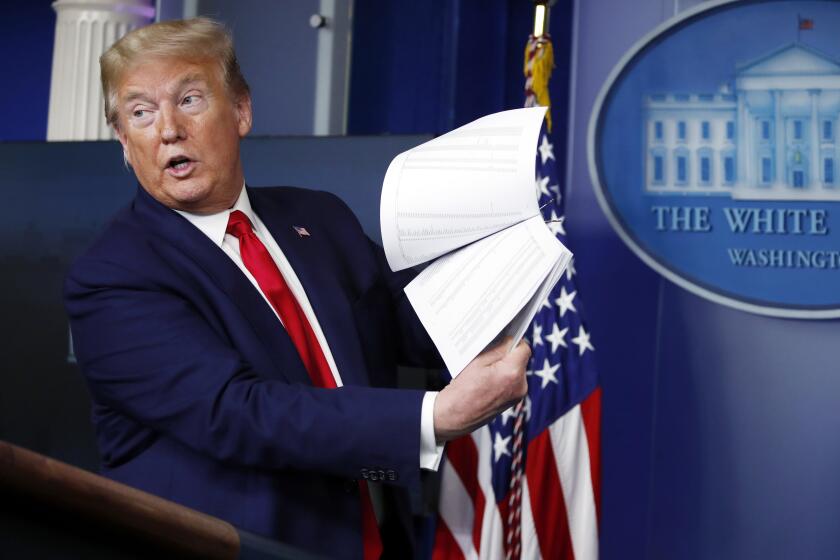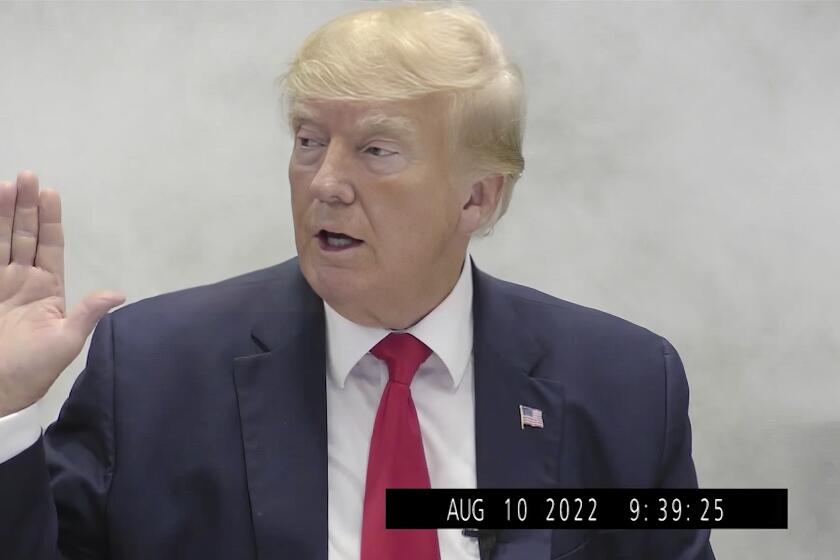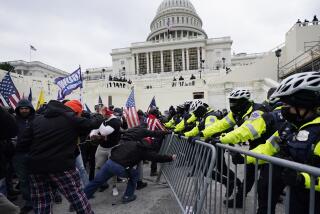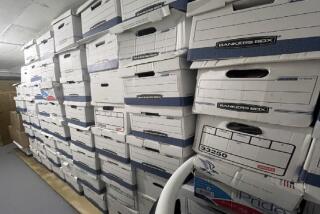Column: What Trump’s assistant told investigators about classified records — and why it’s so damning
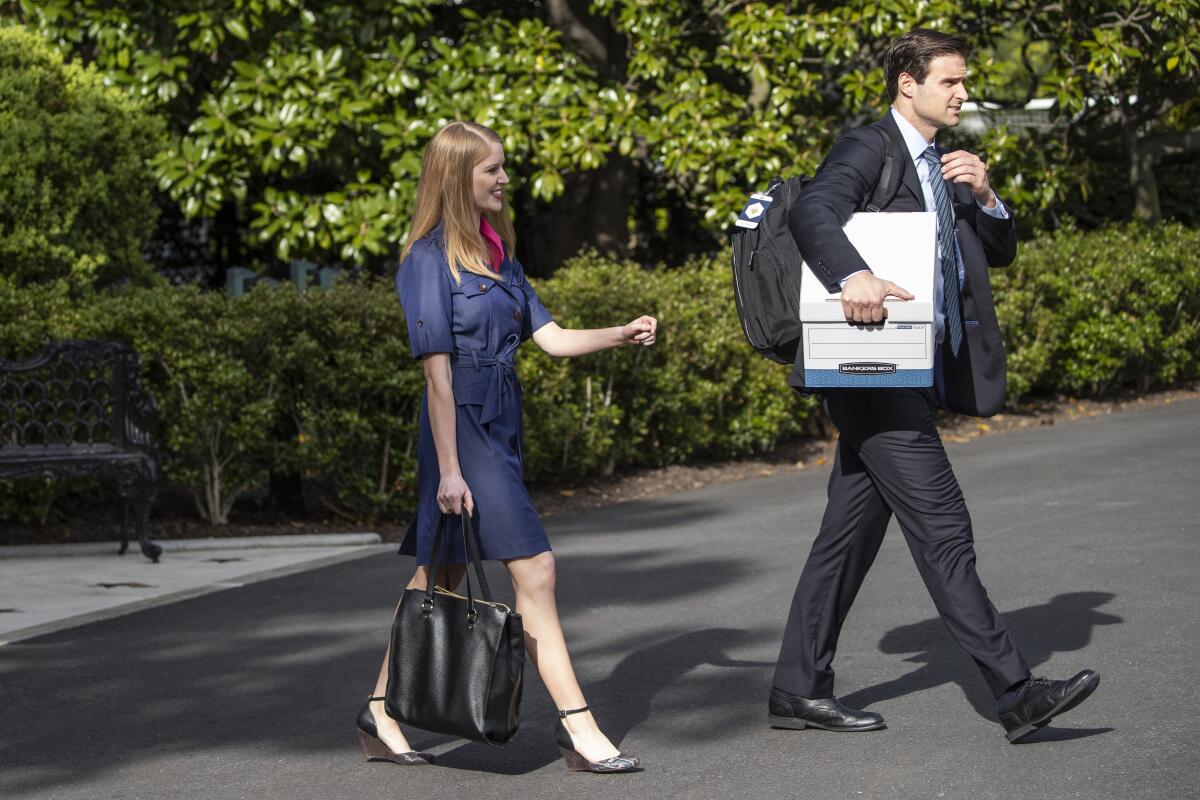
- Share via
Donald Trump has successfully made up his own rules in the political arena, but in the legal arena, he will have to adhere to the rules that apply to all. That’s why a witness such as Molly Michael is so dangerous to him.
We just learned the broad strokes of what Michael, an assistant to the former president at Mar-a-Lago, told special counsel Jack Smith’s team investigating Trump’s mishandling of classified documents. It builds on what we already knew about Trump’s obstruction of justice in the case, particularly after the Department of Justice finally lost patience with his intransigence and issued a subpoena for the documents remaining at his Florida estate.
News reports this week led with the startling new detail that Trump sent Michael notes and to-do lists carelessly scrawled on the back of classified documents. It’s a memorable snippet that drives home Trump’s indifference to classification and national security.
Special counsel Jack Smith’s team has reportedly found that lawyer Evan Corcoran was ‘waved off’ searching the ex-president’s office for sensitive records.
For a prosecutor, however, that was among the least of the revelations from Michael, known as “Trump Employee 2” in the first federal indictment of the former president. What marks Michael as a blockbuster witness is her singular ability to tell the story of Trump’s conspiracy to obstruct justice in unimpeachable terms.
Prosecutors evaluate a witness from the vantage point of not just the substance of their testimony but also how persuasive they will be to a jury and how vulnerable to cross-examination.
Because it’s safe to assume that Trump won’t take the stand and therefore can’t challenge witnesses’ accounts by testifying, cross-examination will be his team’s main strategy for trying to create reasonable doubt in jurors’ minds. And every other witness in the case has at least some vulnerability to skillful cross-examination.
Cases brought by Alvin Bragg and E. Jean Carroll put the ex-president in the impossible position of having to take the stand to make much of his case.
Trump’s aide Walt Nauta and Mar-a-Lago property manager Carlos de Oliveira, who were also charged in the case, could end up testifying for the government. But they would be subject to accusations that they’re fabricating or shading their accounts to get out of a legal jam.
Yuscil Taveras, the Mar-a-Lago IT director also known as “Trump Employee 4,” lied to investigators before getting a new lawyer and telling them that he was asked to delete security footage. A capable cross-examiner can always draw blood from an admitted liar.
Trump’s attorneys also have at least a potential opening against Evan Corcoran, who told a federal grand jury he was “waved off” searching Trump’s office while trying to comply with a subpoena for all classified documents in Trump’s possession. They can suggest that Corcoran is trying to obscure his own culpability for the advice he gave Trump at the time.
Michael has none of these potential blemishes. Hired as an assistant at the White House in 2018 before joining him at Mar-a-Lago, she was reportedly uncomfortable with and unwilling to participate in his efforts to hide the records from law enforcement officials. She reminded him that maintenance workers and others knew about the boxes of classified files in a storage room at the estate, according to the indictment. She personally gave him a picture of scores of boxes stacked up against a storage room wall.
Michael apparently didn’t rush to tell authorities everything she knew but did draw a clear line at trying to deceive them. She found and turned over the classified documents with Trump’s notations. And she appears never to have hesitated to abide by her legal duty to tell the truth.
She also has detailed knowledge of the conspiracy to hide documents from the FBI. She dealt personally with Trump and Nauta. She brought some of the boxes of documents to Trump’s residence for his review.
And most damningly, when Trump learned that FBI agents wanted to talk to Michael, he told her, “You don’t know anything about the boxes.”
Given the plain evidence that Michael knew plenty about the boxes, and that Trump knew she knew, a reasonable juror could only interpret such an instruction as a patent effort to obstruct justice. You can almost hear members of the jury gasping at the revelation.
Many prosecutions have relied on high-level associates — think mafia underboss Salvatore “Sammy the Bull” Gravano or, in Trump’s case, White House Chief of Staff Mark Meadows — turning on their former bosses. Prosecutors use such witnesses when they must, knowing they will have to weather brutal cross-examinations and must be presented to jurors as flawed but credible.
But prosecutors would prefer to make their cases with unimpeachable witnesses — the mild-mannered mob accountant or honest low-level aide with no ax to grind. In the classified documents case, that is the role Michael is likely to play to the former president’s great detriment.
Harry Litman is the host of the “Talking Feds” podcast. @harrylitman
More to Read
A cure for the common opinion
Get thought-provoking perspectives with our weekly newsletter.
You may occasionally receive promotional content from the Los Angeles Times.
